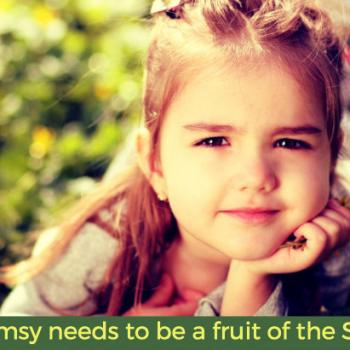
Image: Unsplash
“Friendship marks a life even more deeply than love. Love risks degenerating into obsession, friendship is never anything but sharing.” ~ Elie Wiesel
The biggest problem with friendships in fundamentalism is the inability to see people as human beings rather than an agenda. When a person’s eternal destination is of urgent priority, the nuances of their personality and humanity pales in comparison. This is the kind of baggage some of us may bring to adulthood and into parenting.
I find there is a lot of emphasis placed on Christian parents to model a healthy marital relationship for our kids. Lots of books and conferences are devoted to helping Christian parents nurture and cultivate their marriage, but not much attention has been given to sustaining friendships as parents. A couple of reasons for this: first, a glorification of marriage as the epitome of human relationships, and second, child rearing takes priority over having autonomy as a parent, particularly for the mother. Ingrained sexism is the reason why so many mothers deal with ‘mommy guilt’ when taking any time to themselves to nurture their adult friendships.
Unfundamentalist parenting is to shed some of these unhealthy relationship dynamics so that we become healthier for ourselves, but also so we can model something better for our children. Forging friendships is a vital part of our children’s development, and has the capacity to shape a lifetime of relationship patterns.
I’d like to unpack five bad habits we may have picked up from fundamentalism, and hopefully by recognizing these patterns, we can break free from them for the sake of our children.
1. Make and keep friends. I’ve already touched on the sexism that keeps mothers, especially, from pursuing time with friends. Women have adopted this “ministry” mentality where we feel like sacrifice, especially on behalf of our children, is sacred, and often neglect our own needs. I feel making time for friends and adult company is a radical act of self care, as well as then laying the groundwork for modeling healthy friendships to our children. I understand how difficult it is in those early months and years of intense child-rearing, that we often choose to sleep or veg with Netflix instead of go out with friends. But it’s easier than ever to stay connected with a multitude of apps that gives us the convenience of being social while nursing or half asleep in the middle of the night. Be intentional about making and maintaining friendships and ditch mommy guilt.
2. Codependence. The sentimentality embedded in a lot of Christian speak surrounding “community” can lead to some codependent relationships. Under the spiritual guise of ‘confession’ or ‘accountability,’ relationships in fundamentalism can quickly veer into the territory of oversharing and placing unrealistically high expectations for others to be your messiah, and vice versa. This expectation to be “brothers and sisters in Christ” can hinder people from learning to slowly cultivate trust from one another instead of getting a free pass on easy ‘friendships’ because you joined the same small group at church. A healthy friendship requires there be an appropriate amount of giving and receiving, with the level of vulnerability increasing as the relationship slowly grows more intimate.
3. Healthy Boundaries. There has been a great deal of harm done under the name of ‘reconciliation.’ My friend Kay Bruner likes to quip, ‘Do no harm, and take no shit,’ which is an incredibly difficult lesson for those of us who grew up believing enduring abuse is somehow godly. The lesson I’ve had to learn in adulthood, recovering from these twisted expectations is that if people (friends, even) treat me badly, it is OKAY to distance myself from them. Sure, we are called to be generous with our love and compassion, to risk love and invest in friendships. But to trap ourselves in toxic relationships in the name of love is harmful for everyone involved. This is an important lesson for our children to learn, especially in their vulnerability, to institute strong boundaries protecting their own autonomy.
4. Cultivate diverse friendships. Fundamentalist communities are by nature insular and often homogenous. Fear of those who are outside the bounds of orthodoxy escalates into fears of anyone who looks or lives differently than one’s tradition. This robs the children in our communities to have personal interaction with lots of diverse people groups—those who have different skin color, ethnicities, abilities, orientation, and religions. Learning to love different kinds of people will help us love each person more fully. I hope I am modeling this well for my kids, and my wish is for them to learn to cultivate diverse friendships in their own life.
5. Trusting Our Instincts. A lifetime of unhealthy relationship patterns can lead one to become easily gaslit. When I look back at some of the toxic friendships I sustained for too many years, I can see, in hindsight, many moments when I felt something was “off,” but expectations from fundamentalist culture compelled me to ignore those gut checks. Fundamentalism taught me I’m inclined to be selfish because of my sinful nature, therefore remaining in friendships that hurt me is a form of unselfishness.
The best thing we can do to help our children nurture healthy friendships in their life is to treat them with dignity and respect. After all, their first experience of a relationship is with their parent. If we can give them that foundation of healthy friendships, then once they venture out into the larger social world, their instincts will kick in when a toxic relationship enters their lives. We must encourage them to lean into their own inner voice and pay attention to those red flags.
Here’s to healing our own broken friendship patterns and laying the groundwork for a lifetime of healthy friendships for our growing children.
Get a free download of a Christian parenting manifesto that helps us guide children into healthy spirituality + the most helpful parenting resources with progressive values.












